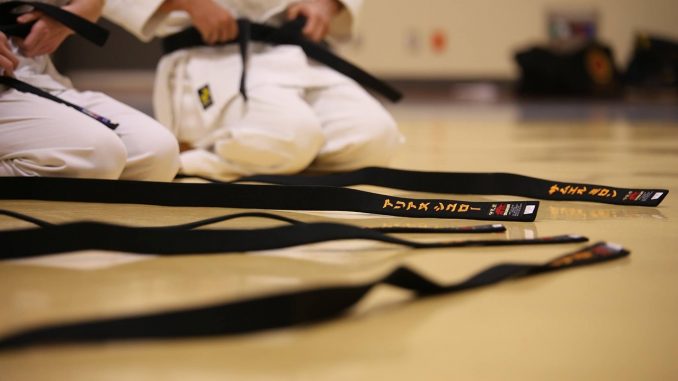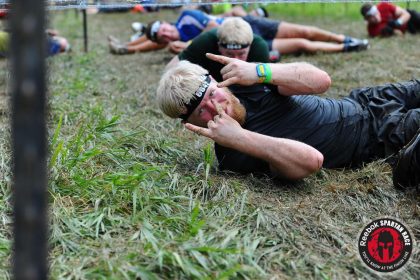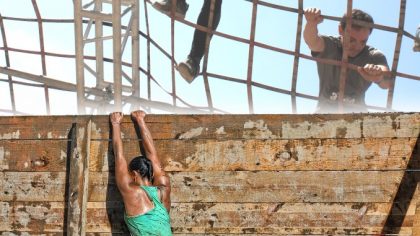So, you want to make functional fitness and martial arts a part of your life… How do you make training work while juggling with other responsibilities?
Let’s go over six common “reasons” why you’ve avoided taking action on your fitness and martial arts endeavours. Look out for the interview case-study announcement at the end!
6 excuses to avoid training & what you should do instead
1You are waiting for the perfect time

Do these “reasons” sound familiar?
I will begin training after the exams.
I’m swamped with work. Maybe after this month…
I’m going on a two-week vacation – there aren’t any gyms there.
There will never be a perfect time – when you are not occupied with responsibilities – to begin training. The stars will never ever perfectly align. Life happens and you are taken into a whirlwind of a ride.
The questions are how do you manage the chaos and how flexible are you willing to be.
If training in martial arts and fitness is a priority, you make time for it. You plan for the limitations in time and resources, and make do.
2You are a slow learner and doubt your ability to learn something new

Here’s the secret – every athlete and senior-ranking martial artist was mundanely average and nervous when they began.
You might not even believe that some instructors and coaches have learning difficulties, directional dyslexia or just aren’t naturally gifted in sports. Not to mention, many athletes and martial artists still feel the occasional sports anxiety.
But working through anxiety to train consistently will help you grow stronger and surpass innate talent.
Just make the first move to train in what you’re interested in. Don’t doubt yourself in your ability to learn and cope. Skill and confidence comes with practice.
Here’s my experience and tips on dealing with training anxiety and slow learning.
3You don't know how you will get to the advanced levels of training

Why are you trying to look at what’s at the peak of the mountain when you aren’t even standing at the base? Don’t get ahead of yourself.
Do you think I foresaw how I’d managed to do “cheat”/assisted muscle ups (prior to injury), without building my base in pull ups and straight dips? No. I just had faith that I’d get there.
You will never see the second or third step until you make the first move.
You need to build your foundation first. Once you build your base abilities, you will see the next step. And when you get to the next level of abilities, you will see the next series of progression. Don’t be fixated on a grand vision and fear not knowing how to get there.
Believe in yourself and keep moving forward.
4You've trained in the past but failure made you give up

Do not mistake the uncertainty for failure.
As you climb the incline of a mountain, you get to see more of the view. Eventually, you reach a forest that is hard to trek; a plateau, somewhere you may be stuck for a long time or get lost in. But when you get out of it, you will realise that you are on a higher plane than before.
When you are unable to see your progress temporarily, it often means you are developing the fortitude that will take you to greater heights. Believe and you will get there.
5You think it's too late to start and you've passed the age of peak performance
Many martial artists and athletes have proven that it is never too late to begin training. I’m not going to repeat their points here.
However, this is what I have to say. If you are perpetually fixated on the concept of “too late to be the best”, you are at least best at these things:
- worrying and self-doubt
- doing nothing and being on the way to regrets
You either do or do not. There is no room for worrying about you being too old to be at your best.
Have bad knees? Talk to the instructor and see how training can be adapted to your needs.
Always work with your limitations and be proactive. Seek possibilities.
Here are five concerns that older beginners tend to have and how you can overcome them, as posted by Jackie Bradbury.
6You really are juggling too many stressors to focus on training

Are you overwhelmed by too many responsibilities?
The pressure to pay the bills, student loans, mortgage and rent? The fear of being retrenched during the recession? Or maybe you have a family member who has special medical needs that heavily relies on you being there.
Stress is a huge factor that affects a person’s will to train. After all, how can you focus on learning when you constantly worry about mortgage, a sick family member or losing your job?
One change to your routine can make everything worse. You don’t need another thing to remind you of the negativity of life… or do you?
This is a negative and destructive mindset to have. And you’ve assumed that training should be an all-encompassing and time-consuming part of your life. It shouldn’t be.
The problem with this is setting the wrong expectations and seeing training in a misguided light. If I have learnt anything from my failures and successes in cross-training, it is that one’s training expectations must be aligned with their circumstance.
If you are mentally-drained from handling too much, your goal in training is NOT to be at peak performance. With such a goal, you set yourself up to be competitive and face disappointment because you are not at the optimal state of mind. Instead, focus on what you need: using fitness and martial arts as a means to renew your strength and mental fortitude.
When you see physical training in this light, you allow yourself to step away from your problems and disconnect from your mind. You become in tune with the movements in your body, taking it in as a form of meditative restoration. And at the end, you reconnect with your mind, seeing life with a calmer perspective.
Align your purpose in training with the struggles you face. Make training your conduit to a better mind and body; to function better for yourself and the people you love. Train to enhance other aspects of your life.
And by all means, find a way to make it work.
Do you have pockets of 10 minutes throughout the day? Are you able to make it to a martial arts class nearby for an hour?
Do what you can – not to be the best at parkour, fitness or martial arts but to be the best person you can be in a very difficult situation. Here are 41 tips on how to make training a part of your lifestyle.
Introducing Interview Case-studies



The best way to help you start your modern warrior training journey is to show you real-life examples of ordinary individuals who have made it work; people who you and I can relate to – not celebrities.
Thus, Way Of Ninja has been interviewing people from different walks of life to discover how they tackle their responsibilities. No matter their stage of life – be it student, career-focused young adult, middle-aged parent and more – you will find an interview case-study that resonates with your challenges. This will give you insight on how you can overcome your own obstacles to begin (or continue) training as a martial artist, functional athlete and modern-day ninja.
These are the remarkable people whose interview case-studies will be posted for the month of June. The interviews will be published on a weekly-basis.
- Joelle White, a middle-aged matron who trains in Karate (Read her interview case-study)
- Eric Olsen, a young working adult who trains in parkour and gymnastics (Read his interview case-study)
- Jack Sharp, a college student who trains in various martial arts, including the oldest known koryu art – Tenshin Shōden Katori Shintō-ryū (Read his interview case-study)
- Larry McDonnell, a man in his thirties who was born with Dwarfism and overcame the huge odds to do martial arts (Read his interview case-study)
We examine each individuals routines, how they cope with their responsibilities, what sacrifices they make and the deep aspirations they hold.






